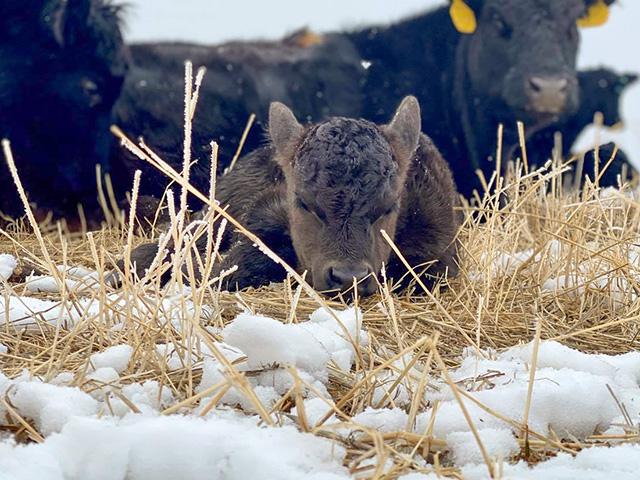Ask the Vet
First-Calf Heifer Won't Let Newborn Nurse
READER QUESTION:
We found a newborn calf that was weak and trying to nurse, but the first-calf heifer was kicking at it. The heifer's front two teats were swollen and red, and she was agitated and ran off. We took the calf home and are bottle raising it. Any tips on what to do?
DR. MCMILLAN'S ANSWER:
There is a good chance the cow has mastitis or inflammation of the udder. Mastitis is most commonly caused by a bacterial infection. This is more difficult to diagnose and treat in beef cows than in dairy cows, but the ideal treatment is the same -- stripping out the udder as often as possible. Mastitis tubes infused directly into the affected quarter(s) are indicated in most cases.
P[L1] D[0x0] M[300x250] OOP[F] ADUNIT[] T[]
For beef cows, I recommend keeping cow and calf separated for a few hours after infusion so the antibiotic is in contact with the bacteria longer and has a chance to absorb into tissues. In cows that are visibly sick, more intensive treatment may be needed. Injectable antibiotics can be helpful in some cases; however, many do not reach effective levels in the udder. Nonsteroidal, anti-inflammatory drugs can reduce pain and inflammation. Intravenous and/or oral fluids may also be helpful in very sick cows.
Another possibility is that this heifer has "blind quarters". That means there is no open teat canal so milk is trapped in the quarter. Some heifers may not be good mothers and the quarters become swollen because the calf is not allowed to nurse. Lastly, some cows develop mastitis before they even calve, and the udder may be scarred and nonfunctional.
If possible, get this cow up and try to figure out what is going on. She likely needs to be culled, but she may also need treatment especially with active mastitis or blind quarters. And don't forget the calf. Even if you gave it colostrum when you found it, there is a good chance it may not have absorbed adequate immunoglobulins.
Calves need to aggressively nurse or be given at least 2 quarts of high-quality colostrum or colostrum replacer with at least 100 grams of IgG as soon after birth as possible. By the time you reach the 24-hour mark colostrum is no longer absorbed. Your veterinarian can do a quick blood test to see if there was a "failure of passive transfer" meaning calves are more likely to get sick, most commonly from respiratory or GI diseases.
**
Editor's Note:
Please contact your veterinarian with questions pertaining to the health of your herd or other animals. Every operation is unique, and the information in this column does not pertain to all situations. This is not intended as medical advice but is purely for informational purposes.
Write Dr. Ken McMillan at Ask the Vet, 2204 Lakeshore Dr., Suite 415, Birmingham, AL 35209, or email vet@progressivefarmer.com.
(c) Copyright 2023 DTN, LLC. All rights reserved.






